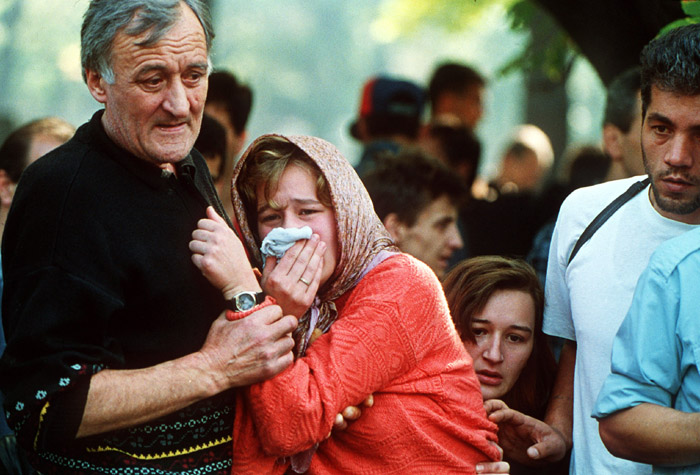
“The use of language is all we have to pit against death and silence.” ~ Joyce Carol Oates
~
Grief is a wilderness that, for many of us, lies outside our boundaries.
We don’t know how it feels to lose someone close, and don’t know what to say to a grieving friend on the street.
Often it’s a blend of politeness and platitudes with a sheen of empathy. Our society has forgotten what our great-grandparents understood 100 years ago.
There are three camps: Those who know grief. Those who don’t. Those who have just lost someone and are trying to describe what is ripping their insides apart.
When I crossed over the boundary after my wife’s death and entered the “Land of Shadows,” I began to learn its language through trial and error. I had never been any-place like this, and frantically flipped through my Rolodex of emotions trying to find the right words to express what I was feeling.
Slowly my lexicon of grief grew.
My search for language was about survival. Death’s darkness was quickly closing in, and I was trying to kindle enough words to light a fire and fend it off.
The experience of grief is raw and traumatic, and our responses can be equally dramatic. We weep and we howl. We pound on the floor and smash plates. And we swear.
Recently I went to a grief retreat with others who had suffered horrible losses—cancer, stillborns, suicides, murders and car accidents. We swore a lot. We flung f-bombs through the air like Frisbees as we struggled to utter the horror of what had happened. And we didn’t apologize because no word is out-of-bounds when you’re battling death. Swearing was the safety valve on the pressure cooker inside us.
People who are helping the grieving also communicate their care physically as well as verbally. Hugs are important. Touching hands. An arm over our shoulder. The steady look in their eyes rather than looking away when we get emotional. Bringing us dinner. Helping with chores and shopping for groceries. Sitting with us for an hour without saying anything speaks volumes.
The most important interaction happens when people listen.
As we talk about what we are feeling, they ask questions when they don’t understand, and this encourages us to dig deeper into our experiences.
In the beginning, when we try to express our grief, we have single words. We flail about because we’re being pummeled by a dozen different emotions. If we focus, we can identify the main one and realize we are tired, angry, depressed or that our heart hurts. We can also use colors. “Today I feel purple.”
As we become more familiar with grief, we go beyond single words and use similes, metaphors and images. We say, “Grief feels like a wolf sitting in my living room where I’m always fearful of its presence.” Or “Grief is a massive thunderstorm raging inside me.” Or “Grief feels like I’m hiking through a dark forest.”
With more time, we weave our descriptions into a story, describing how the journey began when we found ourselves in a rugged canyon of despair, saw light to the east, and followed the trail that went over a steep mountain.
We flesh out our story by using our imagination. How did the forest feel, smell and sound? What did we see moving in the shadows? As we become more familiar, we realize that grief is not a wolf threatening to tear us apart but a coyote that comes with wisdom. Other images emerge out of our subconscious that move us beyond the facts of death into meaning.
When we listen to the stories of others who are grieving, we are able to put our sorrow into a larger context and understand how grief fits into the world. We also discover how many people have lost spouses, siblings, parents or friends, and how many of them died young.
Grief ushers us into the sacred space between death and life. We listen carefully to the shadows, and then speak the words we hear.
Does it matter how we talk about grief? Ludwig Wittgenstein said, “The limits of my language set the limits of my understanding.”
If we only allow ourselves to share our grief in polite ways, then we censor ourselves, and unresolved grief breaks us down. As we find the words to describe our grief, we begin unraveling the mystery that surrounds us.
Language is our path through grief.
~
Relephant read:
The Value of Holding Space with Another’s Grief.
~
Author: Mark Liebenow
Editor: Khara-Jade Warren
Image: Mikhail Evstafiev/ Wikimedia Commons
~


 Share on bsky
Share on bsky




Read 27 comments and reply